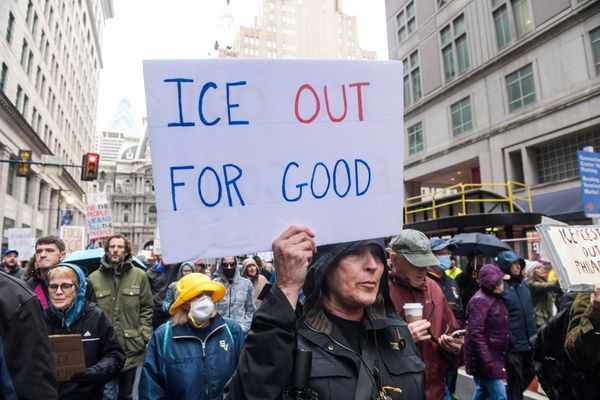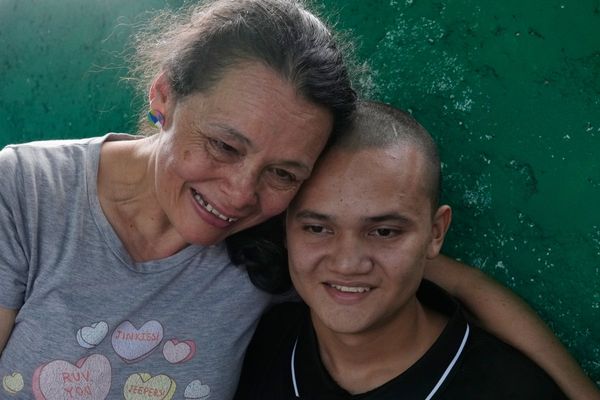
As my dusty Toyota Hilux bumped down the sloping street past concrete walls flanked by palm trees, my stomach flipped with anticipation. Everything was familiar, although I’d never been to this street in Kampala, Uganda’s capital, before. Google Street View had offered me a window into another life, continents away. I slowed as I passed a house, but wasn’t ready to stop yet.
My preoccupation with this particular street had begun in my childhood, when my parents told me tales from their years before me, in countries far from mine. My mother’s stories of road trips to the Nile and colourful pet chameleons captivated me. This side of my family is Indian, but she was born in Uganda. As a five-year-old, I used to mix the countries up. It would be much longer before I understood the global forces behind the family migration.
In August 1972, Ugandan dictator Idi Amin ordered the country’s entire South Asian population to be expelled, accusing them of sabotaging the economy. Facing threats of violence, 50,000 people were given just 90 days to leave their homes, friends, pets and lives for ever. My grandparents, Rachel and Philip, had arrived two decades earlier, having been recruited in India by the British to work as teachers in the then-British Protectorate of Uganda. They were two of the 28,000-plus who would come to Britain during the expulsion – as a legacy of the empire, many South Asians held British passports. My family later moved to Australia.
Growing up in Sydney and later Cambridge, explaining my origins wasn’t easy. The multi-continental migration was a mouthful, no one my age knew anything about the turmoil of expulsion and I often felt I didn’t belong enough to any of the four countries of my roots to claim them. I was conflicted as to where I could truly say I was from.
Uganda was one of the first countries I travelled to independently, drawn to this piece of my past, although I didn’t seek out a true reckoning with my family history. Deep down, I feared I would not be welcome and any pilgrimage would be a devastating disappointment. It would be another 15 years before I plucked up the courage to find my grandparents’ former home while researching my book on Ugandan Asian history.

I drove past the unassuming driveway a few more times before stopping. In the 50 years since my family were forced out, lawns had been tarmacked over and new structures erected and rented out to businesses, but the bones of the original bungalow lived on. I spoke to tenants in the hopes of reaching the owner, but my efforts were complicated by a misunderstanding that I, like many Ugandan Asians before me, was trying to reclaim property seized in 1972, which inevitably involved evicting those residing in it.
But after a tricky start, on one sunny afternoon, I found myself living the moment I had imagined so many times. As I sat with the present owner, she leafed through my collection of faded family photos, confirming our shared heritage in this place. I learned how the house was bought from the government 10 years after my grandparents packed up, and it had been in the same family ever since. I was delighted to see that some of the trees planted by my grandfather all those years ago were still standing.
Looking up at the grey bungalow, history took over the landscape. I saw the slope my mother did handstands on, imagined the echoes of the BBC World Service coming from within the house, and thought of the beloved dogs standing guard at the front door, who had to be left behind when Amin brutally undid lives.
During my previous travels in Uganda, I had begun to get to know the spirit of the land my family had loved. Eating rolex (a fusion food turning Indian chapatis into a street snack), looking out over the Nile in Jinja and, on the shores of Lake Bunyoni close to the Rwandan border, holding up a stick with a tiny chameleon clutching on to it.
But being in the actual space my family inhabited, and having a beautiful human connection here, moved me on a level I hadn’t expected. I had started to wonder if I could ever claim to belong to this country as I was so clearly an outsider. But our conversation spun a thread between my grandparents, no longer here, through the generations to me, and the family who had called this place home ever since. It cemented that this existence long ago was real, and didn’t end in 1972, but carried on a new life – one I could now be a tiny part of.
All my life I have been asked where I’m from, and it hasn’t been easy to give an answer. Revisiting such an important part of my family’s past breathed confidence into my knowledge that I come from many places, and all of them are a piece of home.
The Exiled: Empire, Immigration and the Ugandan Asian Exodus is out now (Coronet, £22).







